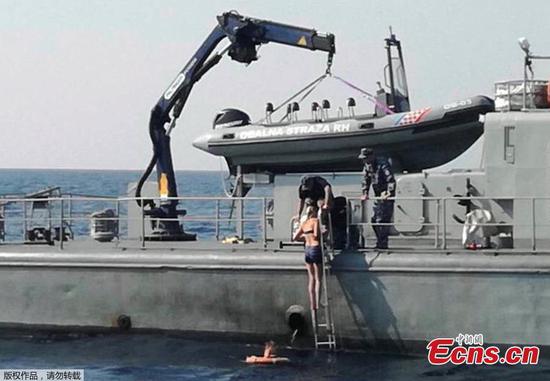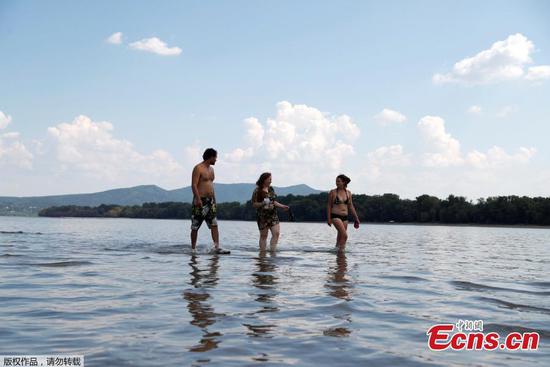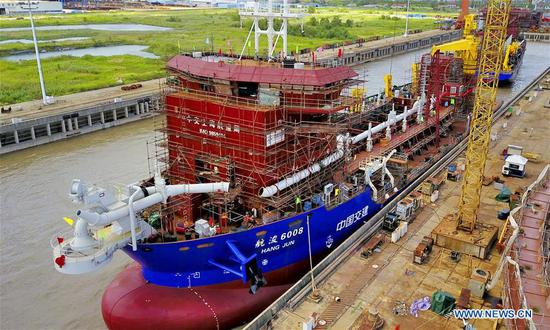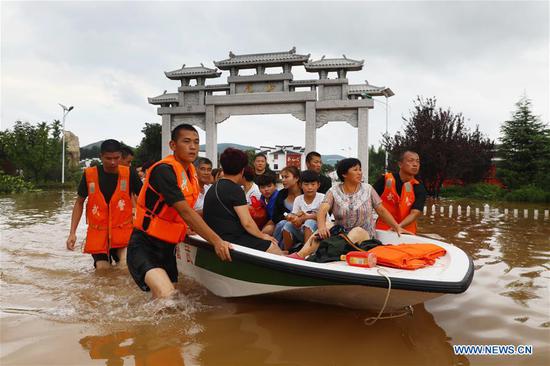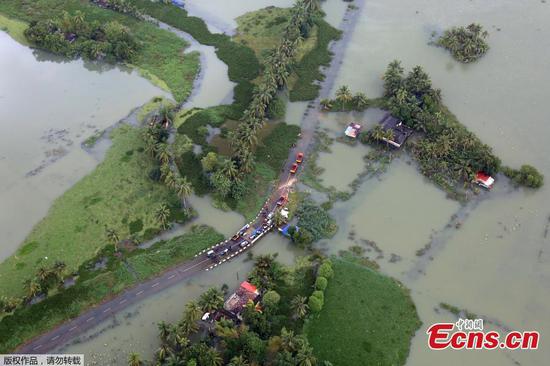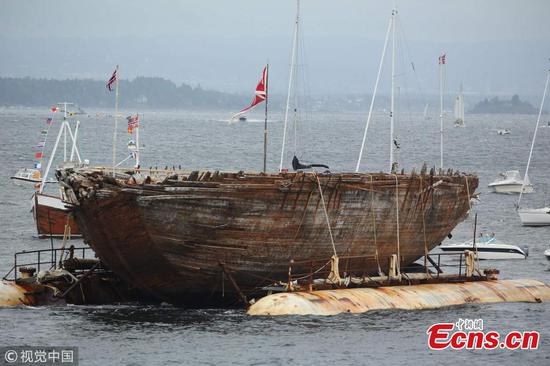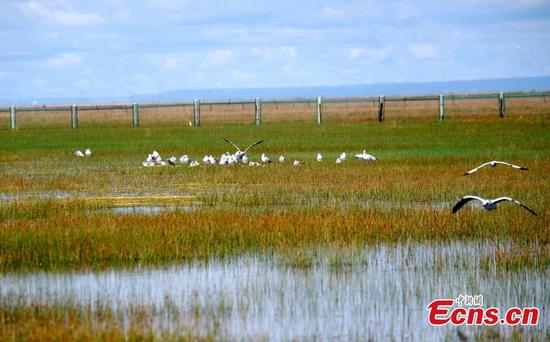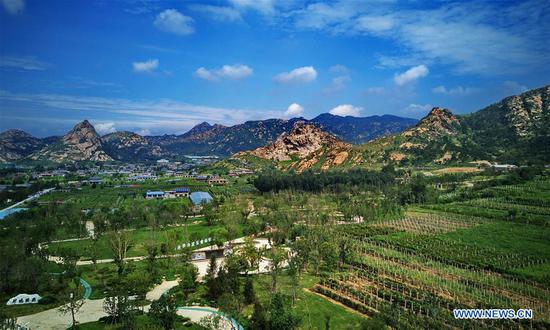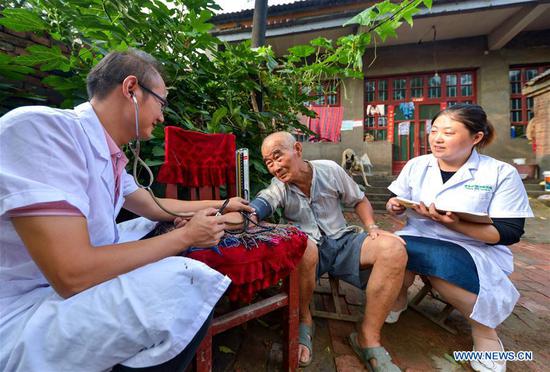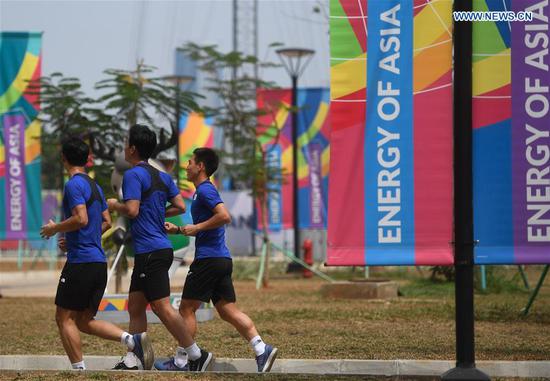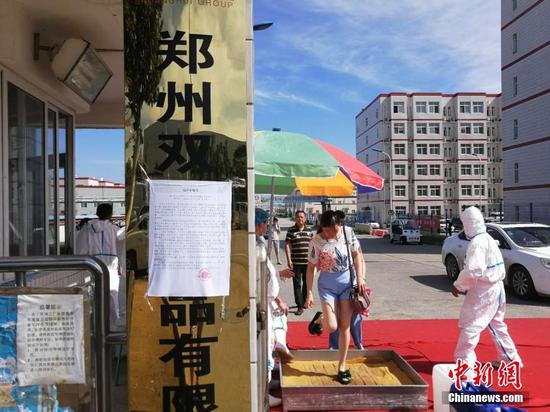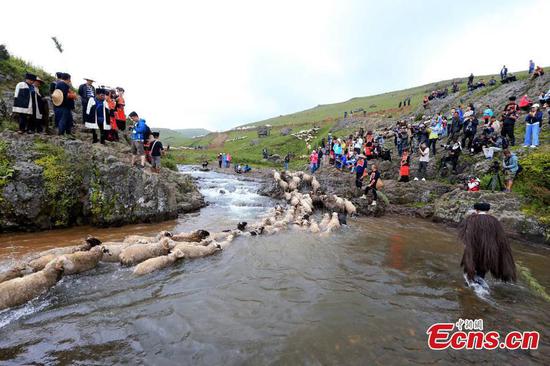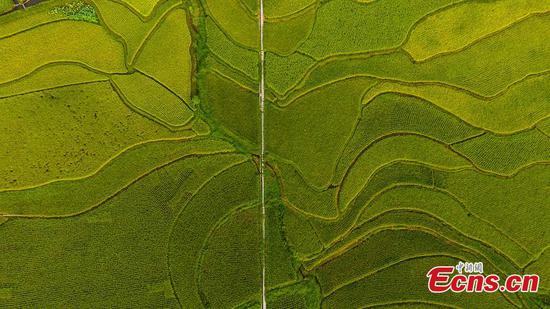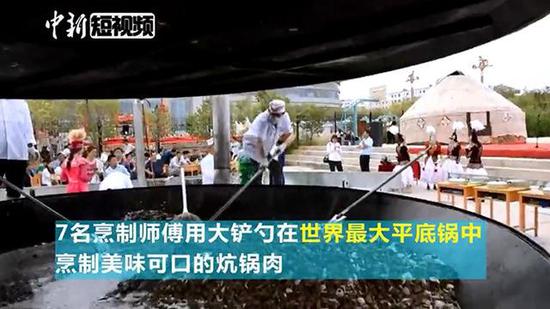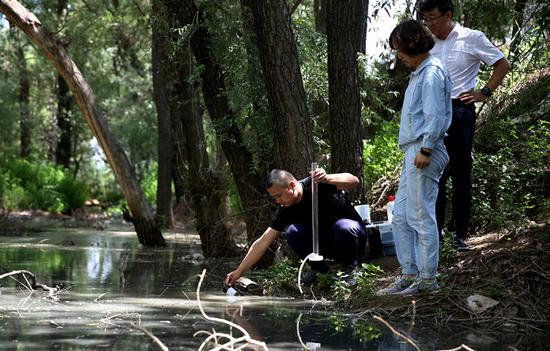
Environmental inspectors collect water for testing from a potentially contaminated river in Yulin, Shaanxi Province, in June. (HOU LIQIANG/CHINA DAILY)
In addition to fieldwork, the inspectors scrutinized reams of government documents to identify waterways they should examine with particular attention.
The documents also showed the layout of sewage pipe networks near waterways and the locations of major drains. During the field exercises the inspectors carried shovels and crowbars so they could access the drains to check they were working properly, according to Zhang.
"Initially, many local governments tried to hide problems, but they abandoned that approach when they discovered that the inspectors walk the entire length of rivers, from their source to their end," he said.
Another important factor for the inspectors was whether local residents were satisfied with treatment work undertaken by local governments.
Before Sun and his colleagues began patrolling the Shahe River, they collected test samples from points on the upper, middle and lower reaches. After the patrol, a second team of inspectors visited local residents with questionnaires to conduct a survey.
Even if a waterway passes the lab tests and field inspections, it still may not be classified as clean if most of 100 local residents surveyed are not satisfied with the results of the treatment work.
Few people live near the Shahe River, and most of those who do work in Yulin, so when the survey team arrived during working hours there were no local residents to question.
About 10 employees of nearby companies took part in the survey, but that wasn't enough to draw an accurate picture, especially as some of those questioned do not live locally.
"Many go home when they get off work and have no idea about the state of the river at night," said Gong Jianfeng, who oversaw the survey, noting that some companies discharge waste into the water under cover of darkness when few environmental officers are on duty.
Gong said the team paid a second visit during the evening to gather responses from local residents.
Lan Jun, director of the 14-strong team of inspectors in Shaanxi, said one of the purposes of the campaign was to promote the treatment of dirty water and allow people to see the results so they will understand and welcome the improvements to the local environment.
"The inspections give priority to public satisfaction," he said.
Zhang, the director-general, said the combination of field inspections and surveys is an important way of preventing local governments from undertaking purely cosmetic cleanup campaigns and then fabricating favorable results.
Public participation
In addition to surveys, measures have also been taken to encourage public participation.
Before the inspection teams arrived in the 70 cities, their visits were publicized along with the number of a telephone hotline so people could report unclean waterways or violations of environmental regulations, Zhang said.
The campaign mainly targeted waterways in urban areas, but the inspectors also visited rural regions in response to tip-offs that contaminated water was being transported to those areas in barrels or via hidden irrigation channels as a means of disposal.
"The environment is a public asset, so public participation is needed to solve problems and protect nature," he said.
Public participation played an important role in the campaign and helped to unearth 274 contaminated waterways that had slipped under the radar.
The nationwide field inspection has finished, but people can still participate in the campaign by providing information via an official WeChat account established to push public involvement.
"Once public reports of dirty and smelly waterways are verified, the rivers will be included on a national list and treatment will be monitored to ensure a satisfactory result," Zhang said.
"The campaign will not end as long as these contaminated waterways exist."









